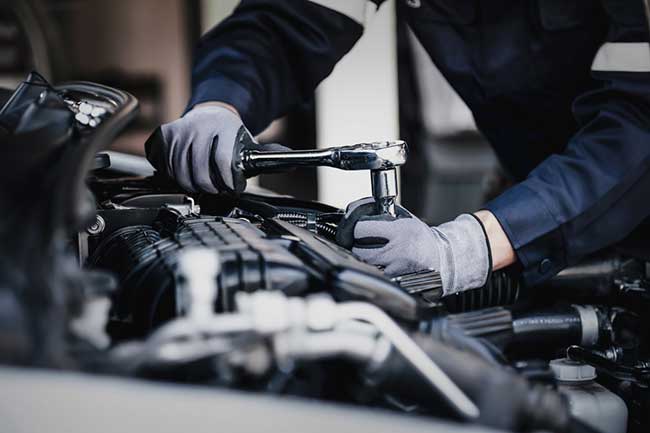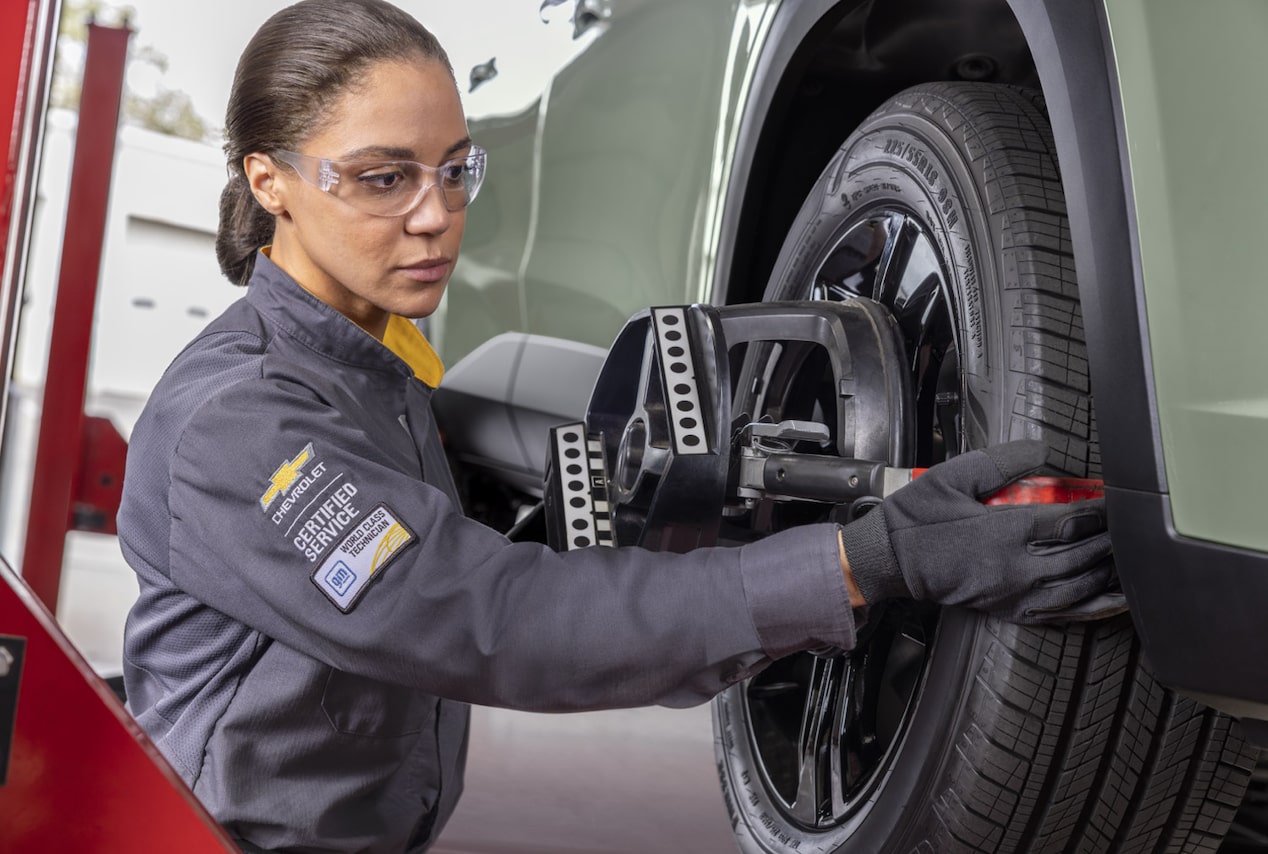All Categories
Featured
Regular tire turnings are a vital yet often overlooked element of automobile maintenance. This straightforward treatment, which entails altering the setting of your tires, helps keep even use across all four tires, eventually boosting your car's performance and longevity. Allow's explore the significance of tire turnings and the concrete benefits they offer.
What Is a Tire Turning?
![]()
Tire rotation involves moving the tires to various placements on your car. The front tires may be exchanged with the rear ones, or they may be gone across from one side of the lorry to the various other. The rotation pattern depends upon factors like your vehicle's drivetrain (front-wheel drive, rear-wheel drive, or four-wheel drive) and the sort of tires you use.
Why Are Normal Tire Turnings Vital?
Tire rotations make certain that all tires put on down evenly. Since different tires experience varying levels of anxiety based on their position, uneven tire wear takes place normally. :
Front tires on front-wheel-drive lorries take care of even more jobs like guiding, stopping, and velocity, causing them to wear faster.
Back tires on rear-wheel-drive vehicles bear comparable concerns, leading to uneven wear patterns if left unchecked.
![]()
Without normal rotations, some tires might put on out prematurely, necessitating substitute quicker than expected.
Benefits of Routine Tire Rotations
Improved Performance and Handling. Also tire wear helps preserve well balanced grip throughout all 4 tires. This equilibrium is important for optimum lorry handling, specifically in tough driving problems such as rain or snow.
Extended Tire Life-span. Regular rotations distribute wear even more equally, minimizing the need for frequent substitutes and saving you cash in the lengthy run.
![]()
Enhanced Fuel Efficiency. Erratically worn tires can enhance rolling resistance, requiring your engine to work harder and eat even more fuel. Properly rotated tires guarantee smoother rides and better fuel economy.
Safety and security. Worn tires concession grasp and stopping performance, boosting the threat of accidents. Revolving your tires routinely keeps constant walk depth and makes sure a more secure driving experience.
How Commonly Should You Revolve Your Tires?
A lot of specialists advise revolving your tires every 5,000 to 7,500 miles, but this can vary based upon your car's supplier guidelines. It's a good technique to incorporate tire rotations with routine services like oil changes for comfort.
Indications You Required a Tire Rotation
Irregular tread wear on your tires.
Recognizable vibration while driving.
Problem managing the vehicle on damp or slippery roads.
Final Thoughts
Regular tire rotations are a straightforward yet impactful upkeep job that enhances car efficiency, boosts security, and saves you cash. By dedicating to this practice, you'll delight in a smoother driving experience and a longer lifespan for your tires. Consult your automobile's manual or a trusted auto mechanic to guarantee you're following the right rotation timetable and pattern for your vehicle.
What Is a Tire Turning?

Tire rotation involves moving the tires to various placements on your car. The front tires may be exchanged with the rear ones, or they may be gone across from one side of the lorry to the various other. The rotation pattern depends upon factors like your vehicle's drivetrain (front-wheel drive, rear-wheel drive, or four-wheel drive) and the sort of tires you use.
Why Are Normal Tire Turnings Vital?
Tire rotations make certain that all tires put on down evenly. Since different tires experience varying levels of anxiety based on their position, uneven tire wear takes place normally. :
Front tires on front-wheel-drive lorries take care of even more jobs like guiding, stopping, and velocity, causing them to wear faster.
Back tires on rear-wheel-drive vehicles bear comparable concerns, leading to uneven wear patterns if left unchecked.

Without normal rotations, some tires might put on out prematurely, necessitating substitute quicker than expected.
Benefits of Routine Tire Rotations
Improved Performance and Handling. Also tire wear helps preserve well balanced grip throughout all 4 tires. This equilibrium is important for optimum lorry handling, specifically in tough driving problems such as rain or snow.
Extended Tire Life-span. Regular rotations distribute wear even more equally, minimizing the need for frequent substitutes and saving you cash in the lengthy run.

Enhanced Fuel Efficiency. Erratically worn tires can enhance rolling resistance, requiring your engine to work harder and eat even more fuel. Properly rotated tires guarantee smoother rides and better fuel economy.
Safety and security. Worn tires concession grasp and stopping performance, boosting the threat of accidents. Revolving your tires routinely keeps constant walk depth and makes sure a more secure driving experience.
How Commonly Should You Revolve Your Tires?
A lot of specialists advise revolving your tires every 5,000 to 7,500 miles, but this can vary based upon your car's supplier guidelines. It's a good technique to incorporate tire rotations with routine services like oil changes for comfort.
Indications You Required a Tire Rotation
Irregular tread wear on your tires.
Recognizable vibration while driving.
Problem managing the vehicle on damp or slippery roads.
Final Thoughts
Regular tire rotations are a straightforward yet impactful upkeep job that enhances car efficiency, boosts security, and saves you cash. By dedicating to this practice, you'll delight in a smoother driving experience and a longer lifespan for your tires. Consult your automobile's manual or a trusted auto mechanic to guarantee you're following the right rotation timetable and pattern for your vehicle.
Latest Posts
Learn How to Cut Costs on Car Maintenance with Montclare Auto Repair’s Special Deals
Published May 30, 25
1 min read
Uncover Cut Costs on Car Maintenance with Montclare Auto Repair’s Exclusive Deals
Published May 27, 25
1 min read
Discover WyHy FCU – Top Benefits for Your Future
Published May 24, 25
1 min read
More
Latest Posts
Learn How to Cut Costs on Car Maintenance with Montclare Auto Repair’s Special Deals
Published May 30, 25
1 min read
Uncover Cut Costs on Car Maintenance with Montclare Auto Repair’s Exclusive Deals
Published May 27, 25
1 min read
Discover WyHy FCU – Top Benefits for Your Future
Published May 24, 25
1 min read